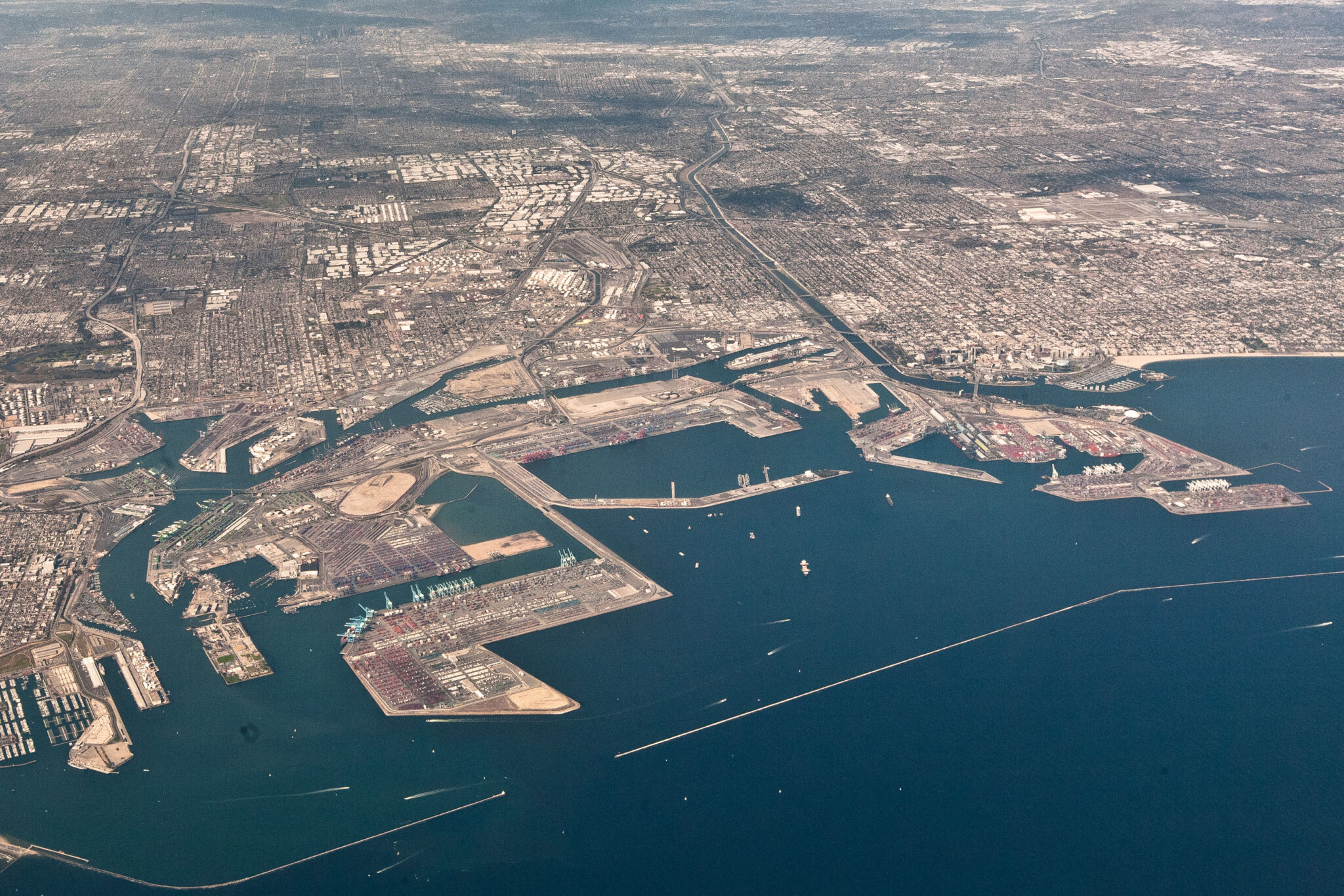
Morgan Sperry is a student at Harvard Law School and also serves as OnLabor's Social Media Director.
In today’s News and Commentary, the International Longshore and Warehouse Union and port officials negotiate, and the WGA strike continues.
Over the weekend, the International Longshore and Warehouse Union (ILWU) continued to push for a fair and equitable contract with the Pacific Maritime Association (PMA). Noting that PMA members and terminal operators made a record $510 billion during the pandemic while ILWU workers put their lives on the line to maintain service, workers across West Coast ports are pushing for a contract that passes on to them some of those unprecedented economic gains. The PMA, meanwhile, claims that the ILWU has “effectively shut down” ports in Los Angeles, Long Beach, and Oakland—which manage approximately 40 percent of all U.S. cargo imports from Asia—as negotiations have stalled. Echoing the talking points deployed during last year’s railway strike, the PMA has called upon the White House to intervene, citing possible economic losses in the magnitude of $500 million a day.
As the WGA strike enters its sixth week, the Alliance of Motion Picture and Television Producers (AMPTP) has reached a tentative agreement with the Directors Guild of America (DGA) “confirming that A.I. is not a person and that generative A.I. cannot replace the duties performed by members.” Notably, the WGA has also sought from the AMPTP—and thus far been denied—this same guarantee.






Daily News & Commentary
Start your day with our roundup of the latest labor developments. See all
February 12
Teamsters sue UPS over buyout program; flight attendants and pilots call for leadership change at American Airlines; and Argentina considers major labor reforms despite forceful opposition.
February 11
Hollywood begins negotiations for a new labor agreement with writers and actors; the EEOC launches an investigation into Nike’s DEI programs and potential discrimination against white workers; and Mayor Mamdani circulates a memo regarding the city’s Economic Development Corporation.
February 10
San Francisco teachers walk out; NLRB reverses course on SpaceX; NYC nurses secure tentative agreements.
February 9
FTC argues DEI is anticompetitive collusion, Supreme Court may decide scope of exception to forced arbitration, NJ pauses ABC test rule.
February 8
The Second Circuit rejects a constitutional challenge to the NLRB, pharmacy and lab technicians join a California healthcare strike, and the EEOC defends a single better-paid worker standard in Equal Pay Act suits.
February 6
The California Supreme Court rules on an arbitration agreement, Trump administration announces new rule on civil service protections, and states modify affirmative action requirements